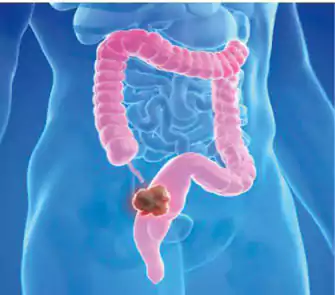The majority of colorectal cancer cases occur in adults over the age of 50, but new research shows this form of cancer is on the rise in young adults and teenagers.
Now, a new study reports from 1999 to 2020, rates of colorectal cancers grew 500% among children ages 10 to 14, 333% among teens ages 15 to 19, and 185% among young adults ages 20 to 24.
The research is being presented on May 20 at Digestive Disease Week 2024 in Washington, DC.
For this study, researchers used data from the Centers for Disease Control Wonder Database to analyze trends in colorectal cancer rates for people ages 10 to 44 from 1999 to 2020.
When examining the data, researchers found changes in colorectal rates, including:
Children aged 10 to 14 — from 0.1 per 100,000 in 1999 increased to 0.6 per 100,000 in 2020 Teens aged 15 to 10 — from 0.3 per 100,000 in 1999 increased to 1.3 per 100,000 in 2020 Young adults aged 20 to 24 — from 0.7 per 100,000 in 1999 increased to 2 per 100,000 in 2020 Scientists also observed a 71% increase in colorectal cancer cases in adults ages 30 to 34 and a 58% increase in adults ages 35 to 39 from 1999 to 2020.
“Colorectal cancer is no longer considered just a disease of the elderly population,” said lead researcher Islam Mohamed, MD, an internal medicine resident physician at the University of Missouri-Kansas City, in a news release.
“It’s important that the public is aware of signs and symptoms of colorectal cancer.”
Why is colorectal cancer rising in young people?
“The fact that people are being diagnosed with colon cancer at a younger age provides us a lot of insight that the clock starts ticking at a young age,” Anton Bilchik, MD, PhD, surgical oncologist, chief of medicine and director of the Gastrointestinal and Hepatobiliary Program at Providence Saint John’s Cancer Institute in Santa Monica, CA — who was not involved in this study — explained to Medical News Today.
“We need to be very aware of things that can be done to prevent the development of colon cancer,” Bilchik said, noting preventive strategies like regular physical activity and eating less processed foodTrusted Source and red meatTrusted Source.









